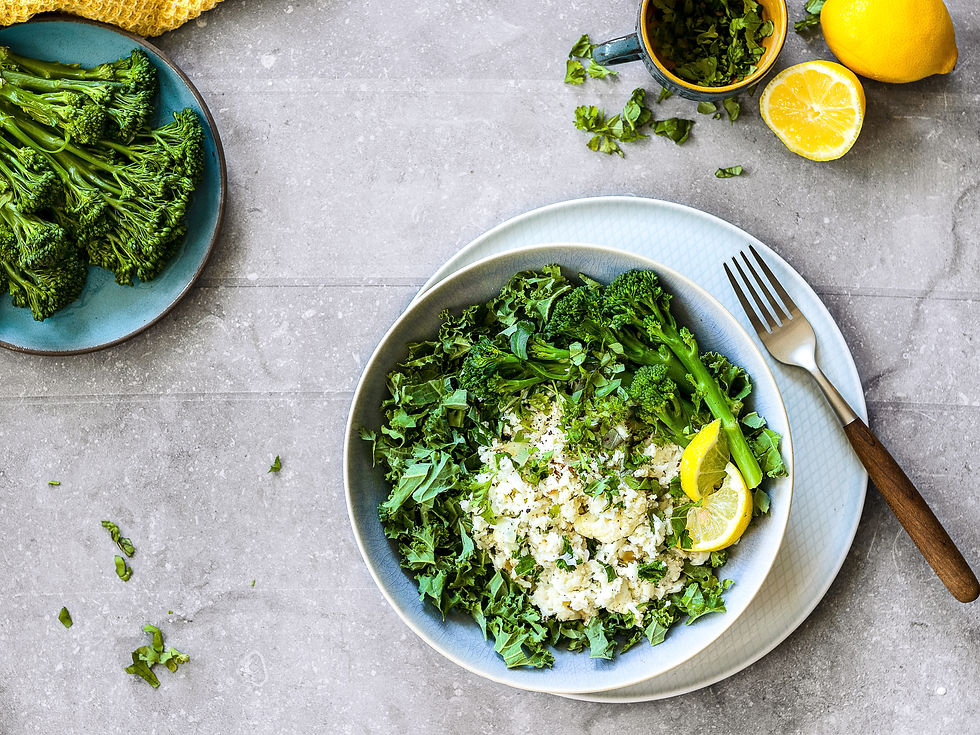The midlife ´Muffin top´: Why do we gain excess belly fat?
- Sally Bolinger

- Jun 19, 2020
- 3 min read
When we begin our perimenopausal journey our female hormones start decreasing, affecting our body fat composition. We start to store more fat and loose precious muscle mass. It is therefore not a surprise that from the age of 40, loosing weight or keeping a stable weight becomes more difficult. Even if we change nothing in our eating habits or workout routine, up to 90% of all women between 45-55 years will see an increase in body fat.
Reason No. 1: Loss of muscle mass
One major reason for this weight gain is the age related loss of muscle mass. And because muscles burn more fat, even in a state of rest, our energy consumption decreases. Meaning the body needs less calories, therefore less food. We actually start loosing muscle mass as early as in our 30s. From then on we loose about 3-5% of muscle mass every 10 years.
The good news is that we can counter act this natural loss of muscle mass. We can do that with protein rich food and strengthening exercise. In doing so, we rebuilt important muscle mass and at the same time help our bone health with protein rich food.
Reason No 2: Estrogen levels fall - fat preferably attaches to the tummy area
During perimenopause the reduction in estrogen production encourages weight gain. Estrogen is mainly responsible for the regulation of the reproductive functions of the body, including fertility and pregnancy. However estrogen also plays an important role in the bodies metabolism. Especially how we store fat, how we react to exercise and how we recover from exercise.
As our estrogen levels drop more and more during perimenopause our body composition changes with it. A decline in estrogen causes fat cells in the abdominal area to store more fat.
This belly fat is not only an annoyance but also the worse kind of fat as it releases inflammatory chemicals that can lead to insulin resistance, and a risk of breast cancer.
Reason No 3: Increased sensitivity to sugar
Another important reason for increased weight gain during the perimenopausal years is that as we grow older we tend to develop a sensitivity to suagr and simple carbohydrtaes. This creates instable blood sugar levels which in turn affects various hormones such as thyroid, testosterone, estrogen and the stress hormone cortisol.
The Midlife ´Muffin Top´ is real
The weight gain during perimenopasue is a fact . It is not your imagination when you have the impression that little food indulgences now go straight to your belly. Also the feeling that despite eating and moving the same as when we were young, but still gaining weight is not an imagination.
A women typically gains 5-7 kg during perimenopasue.
It´s all about quality not quantity of food
The older we grow the less calories our body needs to function. If we continue to eat the same way as we did in our 20s, we will gain weight no matter what. The key is to eat less and to eat the right food and at the same time move more.
As a side, please note that thyroid issues, as well as the use of certain medications can cause weight gain.
What can we do to fight the ´Muffin top?
The earlier we start this process, the better. Because it is easier to loose 5kg than it is to loose 30kg. In addition does overweight increase the likelihood to suffer from chronic illness as well as it increases the severity of perimenopausal and menopausal symptoms. The three pillars to combat the ´muffin top´ and midlife weight gain are:
Diet - This includes a reduction in sugar and carbohydrates, an increase in protein, vegetables, as well as fibre and healthy fats. Also a reduction in alcohol and caffeine is advisable.
Reduce Stress, negative emotions and improve sleep
Support your body with a personalised vitamin and mineral supplementation. This may also include herbs and essential oils.
Once these three pillars are balanced and set-up for your unique body you should be able to say good-buy to that dreaded ´muffin-top´!
If you want to find out more how this can work for you and to set-up your three pillars to health, please get in touch! I would love to help!




Comments